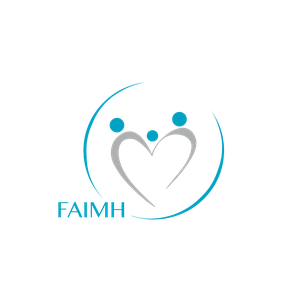Wednesday October 20th
Today's post is written by Miami Chapter Chair, Noemi Marquez, LCSW
As infant mental health professionals, we strive to support and strengthen every child and family we serve, no matter who they are, where they are from, what they look like or how different they are from us. In order to build more diverse, inclusive and equitable organizations, programs and services, we embed the Diversity Informed Tenets for Work with Infants, Children and Families into our everyday lives and work with infants, children and families, or our programmatic management or organizational administration. This starts with aspiration, intentional practice and individual and collective commitment. The Tenets Initiative helps people, organizations, and systems of care by offering a set of aspirational principles which we can all work towards.
Here are some practical examples of how we can implement these tenets into our daily lives and work regardless of how we serve babies, children and their families.
1. Self-Awareness Leads to Better Services for Families
-
making intentional, protected time every week for reflection on the families we serve and how our own experiences affects that work.
-
Making time every day to be self-aware of how we are feeling and in attempt to not allow our feelings to get in the way of our service.
2. Champion Children’s Rights Globally
-
When we are watching the news, pay attention how issues are affecting children’s rights and talk about it with our family and friends.
-
If you feel passionate about a children’s rights issue, get involved, even if that looks like volunteering a little bit of your time or signing a petition.
3. Work to Acknowledge Privilege and Combat Discrimination
-
Work on better understanding our own identity and the various facets where we may experience privilege so we can become more mindful as to how we interact we others.
-
Privilege can be experienced in the context of: race, ethnicity, nationality, religion, social class, beauty, weight, age, education, health or disability status, sexual orientation, or gender identity.
-
Bring to mind that we have multiple identities and folks can have intersecting marginalized identities therefore compounding the impact of negative experiences.
4. Recognize and Respect Non-Dominant Bodies of Knowledge
-
Let us be on the lookout to praise others as folks are wise in their own experiences.
-
Knowledge and information do not only come from academia and research, but also from the families we serve and our colleagues.
5. Honor Diverse Family Structures
-
There are many types of family structures: single-parent families, same-sex parent families, multi-racial homes, families created by adoption and many more.
-
Each family structure is special and valuable, and we can work on respecting and honoring families for their own unique characteristics.
6. Understand That Language Can Hurt or Heal
-
The words we use can intentionally or unintentionally discriminate others.
-
We can be intentional about saying kind things to those around us.
-
We can take time to listen to understand where others are coming from so that we can intentionally keep that in mind while we speak with others.
7. Support Families in Their Preferred Language
-
We seek to hire staff that match the culture of the community we serve and that can talk to our children and families in their preferred language.
-
Recognize that children and families who speak multiple languages or language different than ours bring important strengths and experiences that should be valued and celebrated.
8. Allocate Resources to Systems Change
-
We can give of our time to change the bigger systems, but we can also dedicate the resources we have control of toward making change.
-
We can focus on spending the resource of time and continuing education toward learning more about diversity, equity and inclusion and how to apply it in our homes, workplaces and communities.
9. Make Space and Open Pathways
-
Purposely open job opportunities and leadership opportunities to persons base on their talents, especially those that are historically underrepresented, marginalized and oppressed.
-
We can also do this in other aspects of our life, too, with our peers, personal causes, our families and children.
10. Advance Policy That Supports All Families
-
When we hear policy, we think of politics and government. We can work on those, but we can also work on a smaller scale within our own program or services--examining the policies your program/services may have around eligibility, service provision, or discontinuation of services to identify any policies that overly burden some participants but not others.
-
Let’s take an honest reflective assessment of our own programs and be creative as to how we can adjust our policies and everyday behaviors to support all families regardless of identity. It can start with how you individually treat the babies, children, and families that you work with.
For more information about the Diversity Informed Tenets, visit https://diversityinformedtenets.org


